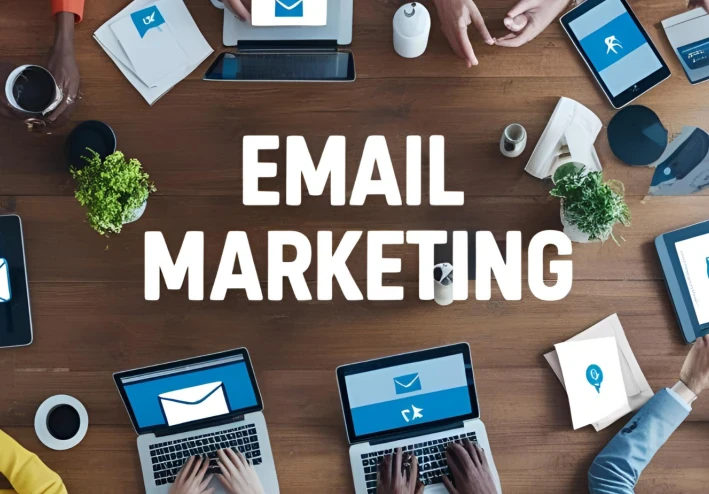
2025 Email Marketing Best Practices: Boost Your Campaigns
In the rapidly evolving digital landscape of 2025, email marketing remains one of the most powerful and reliable channels for direct communication with customers. With emerging trends, privacy changes, and advanced automation tools reshaping the terrain, businesses must adapt to maintain relevance and maximize ROI. Below, we present a comprehensive guide to the best email marketing practices in 2025, designed to help your campaigns achieve peak performance and surpass competitors.
Segment Smarter: Hyper-Personalization at Scale
Gone are the days of sending one-size-fits-all email blasts. In 2025, hyper-segmentation is not just recommended—it's essential. Advanced CRMs and machine learning models allow marketers to craft highly targeted segments based on:
Behavioral triggers (purchase history, website activity)
Demographics (location, age, gender)
Customer lifetime value (CLV)
Engagement levels (opens, clicks, inactivity)
Psychographics (interests, lifestyle preferences)
Tip: Use real-time data to trigger automated flows tailored to each micro-segment, increasing engagement and conversions exponentially.
Craft Compelling, Click-Worthy Subject Lines
Your subject line is the gateway to your email's success. In 2025, standing out in the inbox means:
Using dynamic variables for personalization
A/B testing subject lines continuously
Avoiding spam trigger words (e.g., “Free,” “Buy Now”)
Incorporating emojis and power words strategically
Keeping it under 50 characters to ensure mobile visibility
Example:
❌ “Don't Miss This Deal”
✅ “🎉 David, Your VIP Discount Awaits!”
Design for Dark Mode and Mobile Optimization
With over 85% of emails opened on mobile, mobile-first design is no longer optional. Combine that with the widespread use of dark mode, and your design must check all accessibility boxes.
Best practices for design in 2025:
Use responsive templates
Ensure high contrast for text readability
Include alt-text for all images
Stick to web-safe fonts and scalable visuals
Keep CTA buttons large, tappable, and centrally placed
Leverage AI for Predictive Email Automation
AI has revolutionized email marketing. From predictive send times to content generation, it enables marketers to automate with intelligence.
AI-Powered Capabilities to Implement:
Send Time Optimization (STO): Reach users when they’re most likely to engage
Predictive Personalization: Tailor offers before customers even realize their need
Churn Prediction: Re-engage at-risk subscribers proactively
Dynamic Content Blocks: Show different content to different users within the same email
Create Interactive and Dynamic Content
In 2025, static emails are being replaced by interactive, app-like experiences. Enhance engagement and dwell time with features like:
In-email product carousels
Live countdown timers
Embedded quizzes and polls
Add-to-cart or booking options within the email
These features not only increase interaction but also shorten the path to conversion.
Prioritize Email Accessibility and Inclusive Design
Ensuring that emails are accessible to all users, including those with disabilities, is not just ethical—it’s strategic. Implement:
Descriptive subject lines and headings
Keyboard-friendly navigation
Accessible color contrast
Screen-reader-friendly HTML structure
Bonus: Google favors accessible content, positively influencing deliverability and SEO.
Master the Welcome Series: First Impressions Matter
The welcome email series remains one of the highest-performing sequences. In 2025, we optimize this crucial touchpoint by:
Sending the first email within 5 minutes of signup
Including clear expectations, benefits, and incentives
Introducing your brand story and value proposition
Using progressive profiling to gather more user data over time
Stat to Know: Welcome emails generate 320% more revenue than regular promotional emails.
Embrace Zero-Party Data for Maximum Trust
As third-party cookies fade, collecting zero-party data (data a customer intentionally shares) becomes invaluable. Examples include:
Preference centers
Surveys and polls
Personalized quizzes
Account creation forms
Utilize this data to fuel customized journeys while maintaining privacy compliance.
Conduct Deliverability Audits Regularly
No matter how well-crafted your emails are, they’re worthless if they land in spam. Monitor and improve your deliverability with:
Authentication protocols: SPF, DKIM, and DMARC
Reputation monitoring tools: GlockApps, Postmark, or SendForensics
Spam complaint tracking
Bounce rate analysis
Pro Tip: Remove inactive subscribers every 3-6 months to maintain a high sender reputation.
Build Trust with Transparent Opt-Ins and Easy Opt-Outs
Respect for user privacy is paramount. Ensure compliance with GDPR, CAN-SPAM, and CCPA by:
Using double opt-in for new subscribers
Clearly outlining data usage policies
Providing visible unsubscribe options
Avoiding deceptive clickbait content or misleading subject lines
Transparency strengthens long-term brand trust and reduces churn.
Reignite Inactive Subscribers with Win-Back Campaigns
A dormant list segment doesn’t mean dead. Win-back campaigns in 2025 involve:
Personal reminders: “We miss you, [Name]!”
Exclusive re-engagement offers
Asking for updated preferences
Feedback forms to understand inactivity
Measure reactivation rates and determine when to sunset users who remain unresponsive.
Use Content Intelligence to Guide Messaging
Content should be fueled by user behavior insights, not guesswork. Employ content intelligence platforms like PathFactory, Uberflip, or Persado to:
Analyze performance by content type
Identify high-performing keywords and topics
Predict what content will resonate with each user
Automatically repurpose or optimize content for future campaigns
Incorporate User-Generated Content (UGC) for Social Proof
Consumers trust peers over brands. Amplify your campaigns with authentic testimonials, reviews, and photos submitted by your users.
Feature product reviews in follow-up emails
Include customer success stories
Showcase UGC from social media feeds (with consent)
This approach boosts credibility and improves CTR.
Apply Behavioral Triggers for Lifecycle Campaigns
Design automated journeys based on behavioral milestones:
Abandoned cart reminders with urgency and scarcity
Post-purchase upsell and cross-sell flows
Birthday and anniversary emails
Subscription renewal nudges
Replenishment reminders for consumable products
Triggered emails consistently outperform standard newsletters in open and conversion rates.
Integrate Email with Omnichannel Strategy
Ensure your email efforts are in sync with other channels like:
SMS marketing
Push notifications
Retargeting ads
Social media campaigns
Use tools like Klaviyo, HubSpot, or Iterable for unified cross-channel orchestration.
Measure KPIs That Actually Matter
In 2025, vanity metrics are out. Focus on meaningful KPIs:
Email revenue per recipient (RPR)
List growth rate
Customer acquisition cost (CAC) via email
Time-to-conversion
Subscriber lifetime value
Data-backed decisions lead to measurable, repeatable growth.
Experiment Continuously Through Multivariate Testing
Go beyond A/B testing. Test multiple variables simultaneously including:
CTA placement
Image types
Tone of voice
Email cadence
Send frequency
Use AI-driven testing tools to accelerate learning and deploy winners quickly.
Implement BIMI for Enhanced Brand Visibility
Brand Indicators for Message Identification (BIMI) add verified brand logos next to your emails in inboxes. Benefits include:
Higher open rates
Increased trust and credibility
Standout appearance in crowded inboxes
Set up SPF, DKIM, DMARC, and a verified logo via VMC to qualify.
Focus on Email Lifecycle Marketing Strategy
In 2025, one-off campaigns are obsolete. Build a holistic lifecycle framework that includes:
Acquisition: Lead magnets, sign-up flows
Activation: Welcome sequences, onboarding tips
Engagement: Product updates, offers, value-adds
Retention: Loyalty programs, re-engagement campaigns
Advocacy: Referral requests, review prompts
This lifecycle approach ensures consistent, long-term growth.
Elevate Email to Its Fullest Potential in 2025
As email continues to evolve, those who innovate and adapt their strategies will dominate the inbox. In 2025, successful email marketing blends data-driven personalization, automation, design, compliance, and content excellence into a seamless experience.
By implementing the practices outlined above, marketers can create high-performing campaigns that not only engage but convert. This isn’t just about sending emails—it’s about crafting compelling conversations that drive results across the entire customer journey.





































